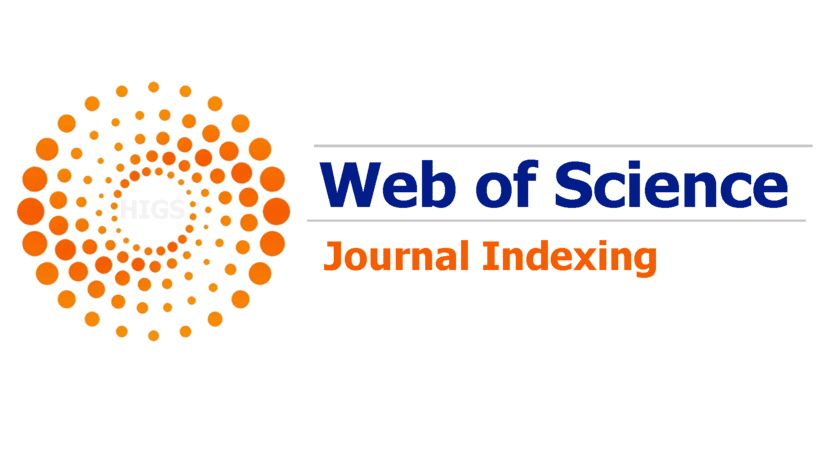Composting in residues management of freshwater fish
Keywords:
biodegradation, environmental contamination, fish, sustainabilityAbstract
A trial was conducted to evaluate the contribution of composting on the suitable management of residues of freshwater fish. The treatment consisted of two stages: the first one was carried out in a composting cell and the second one in a pile. Wood shavings and residues of freshwater fish were mixed in a 3:1 ratio. Data were analyzed through ANOVA and polynomial regression and the averages were compared with the Tukey test at 5%. The results herein obtained showed that composting is an efficient alternative for the management of residues of freshwater fish. The almost intact structure of wood shavings at the end of process, along with the fast decomposition of residues of freshwater fish and the high C/N ratio during 90 days of composting, suggest that a higher proportion of the protein source could have been used. The structuring agent allows the formation of immature composts at the end of 90 days of composting and, therefore, may be used a higher number of times. However, it should not be used when the main purpose is to produce an organic fertilizer.
References
AHN, H.K.; SAVER, T.J.; RICHARD, T.L.;GLANVILLE, T.D. 2009 Determination of
thermal properties of composting bulking materials. Bioresource Technology, 100: 3974-3981.
AN, C.J.; HUANG, G.H.; YAO, Y.; SUN, W.; AN, K.2012 Performance of in-vessel composting of food waste in the presence of coal ash and uric acid. Journal of Hazardous Materials, 203(204):38-45.
ARRUDA, L.F.; BORGHESI, R.; OETTEBER, M. 2007 Use of fish waste as silage í a review. Brazilian Archives of Biology and Technology, 50(5): 879-886.
BALDISSEROTO, B. 2009 Piscicultura continental do Rio Grande do Sul: situação atual, problemas e perspectivas para o futuro. Ciência Rural, 39(1):291-299.
BERNAL, M.P.; ALBURQUERQUE, J.A.; MORAL, R. 2009 Composting of animal manures and chemical criteria for compost maturity assessment. A review. Bioresource Technology,100: 5444-5453.
BRASIL. 2009 Ministério da Agricultura, Pecuária e Abastecimento. INSTRUÇÃO NORMATIVA nº25, de 23 de julho de 2009. Dispõe sobre as especificações e as garantias, as tolerí¢ncias, o registro, a embalagem e a rotulagem dos fertilizantes orgí¢nicos simples, mistos, compostos, organominerais e biofertilizantes
destinados í agricultura. Diário Oficial da União de 28 de julho de 2009, Seção 1, p.20. Disponível em: www.agricultura.gov.br Acesso em: 4 fev. 2011.
CONTRERAS-GUZMÁN, E.S. 1994 Bioquímica de pescados e derivados. Jaboticabal: FUNEP, 409p.
COSTA, M.S.S. DE. M.; COSTA, L.A. DE. M.; OLIBONE, D.; Rí–DER, C.; BURIN, A.;KAUFMANN, A.V.; ORTOLAN, M.L. 2005 Efeito da aeração no primeiro estágio da
compostagem de carcaça de aves. Engenharia Agrícola, 25(2): 549-556.
DROZD, J.; JAMROZ, E.; LICZNAR, M.; LICZNAR,S.E.; WEBER, J. 1997 Organic matter
transformation and humic indices of compost maturity stage during composting of municipal solid wastes. Grunwaldzka, 53: 855-861.
FELTES, M.M.C.; CORREIA, J.F.G.; BEIRÃO, L.H.;BLOCK, J.M.; NINOW, J.L.; SPILLER, V. R. 2010 Alternativas para a agregação de valor aos resíduos da industrialização de peixe. Revista Brasileira de Engenharia Agrícola e Ambiental,14(6): 669-677.
FERNANDES JíÅ¡NIOR, F.; KANO, C.; AZEVEDO FILHO, J.A. de.; DONADELLI, A. 2009 Efeito de fertilizante orgí¢nico oriundo de restos de pescado fresco fermentado, em batata produzida em sistema orgí¢nico. Horticultura Brasileira,27(2): 184-188.
GUO, R.; LI, G.; JIANG, T.; SCHUCHARDT, F.;CHEN, T.; ZHAO, Y.; SHEN, Y. 2012 Effect of
aeration rate, C/N ratio and moisture content on the stability and maturity of compost. Bioresource Technology, 112: 171-178.
HIGARASHI, M.M.; SARDÁ, L.G.; OLIVEIRA,P.A.V.; MATTEI, R.M.; COMIN, J.J. 2011
Avaliação do desempenho da maravalha e da palha de azevém (Lollium multiflorum) como substratos na co-compostagem de dejetos de suínos. In: SIMPÓSIO INTERNACIONAL SOBRE GERENCIAMENTO DE RESÍDUOS AGROPECUÁRIOS E AGROINDUSTRIAIS, 2., 2011, Foz do Iguaçú. Anais... Concórdia: SBERA,2011. 1 CD-ROM.
IQBAL, M.K.; SHAFIQ, T.; AHMED, K. 2010 Characterization of bulking agents and its effects on physical properties of compost. Bioresource Technology, 101: 1913-1919.
KIEHL, E. J. 1985 Fertilizantes Orgí¢nicos. São Paulo:Editora Agronômica Ceres Ltda., 492p.
KLAMER, M. e BAATH, E. 1998 Microbial community dynamics during composting of
straw material studied using phospholipid fatty acid analysis. Microbiology Ecology, 27(1): 9-20.
LAOS, F.; MAZZARINO, M.J.; WALTER, I.; ROSELLI, L.; SATTI, P.; MOYANO, S. 2002
Composting of fish offal and biosolids in Northwestern Patagonia. Bioresource Technology,81: 179-186.
LECONTE, M.C.; MAZZARINO, M.J.; SATTI, P.;IGLESIAS, M.C.; LAOS, F. 2009 Co-composting rice hulls and/or sawdust with poultry manure in NE Argentina. Waste Management, 29: 2446-2453.
LIAO, P.H.; MAY, A.C.; CHIENG, S.T. 1995 Monitoring process efficiency of a full-scale invessel system for composting fisheries wastes. Bioresource Technology, 54: 159-163
LIANG, C.; DAS, K.C.; MCCLENDON, R.W. 2003 The influence of temperature and moisture contents regimes on the aerobic microbial activity of a biosolids composting blend.Bioresource Technology, 86: 131í 137.
LIANG, Y.; LEONARD, J.J.; FEDDES, J.J.R.; MCGILL, W.B. 2004 A mathematical model of
ammonia volatization in composting. Transactions of the ASAE, 47(5): 1667-1680.
LÓPEZ-MOSQUERA, M.E.; FERNÁNDEZ-LEMA,E.; VILHARES, R.; CORRAL, R.; ALONSO, B.;BLANCO, C. 2011 Composting fish waste and seaweed to produce a fertilizer for use in organic agriculture. Procedia Environmental Sciences, 9:113-117.
MPA. Ministério da Pesca e Aquicultura. 2011 Boletim Estatístico da Pesca e Aquicultura 2011.60p. 2011. Disponível em: http://www.mpa.gov.br/index.php/informacoes-e-estatisticas/estatistica-da-pesca-e-aquicultura Acessado em: 17 de nov. 2013.
OETTERER, M. 2002 Industrialização do pescado cultivado. Guaíba: Agropecuário, 200p.
PAIVA, D.P.de 2004 Uso da compostagem como destino de suínos mortos e restos de parição. In: OLIVEIRA, P.A. de (ed.) Tecnologias para o manejo de resíduos na produção de suínos: manual de boas práticas. Concórdia: Embrapa Suínos e
Aves, 2004. p.100-104.
PIEDRAS, S.R.N. e BAGER, A. 2007 Caracterização da aquicultura desenvolvida na Região Sul do Rio Grande do Sul. Revista Brasileira de Agrociência, 13: 403-407.
SAS Institute Inc. 2002-2003. Statistical analysis system. Release 9.1. (Software). Cary. USA.
SILVA, D.J. e QUEIROZ, A.C. de 2004 Análise de Alimentos: Métodos Químicos e Biológicos. Viçosa: Universidade Federal de Viçosa. 235p.
SIPAíÅ¡BA-TAVARES, L.H.; ALVAREZ, E.J.S.; BRAGA, F.M.S. 2008 Water quality and
zooplankton in tanks with larvae of Brycon orbignyanus (Valenciennes, 1949). Brazilian Journal Biology, 68(1): 77-86.
SOUZA, E.A.; ANDRE, M.V.; SANTOS, C.S.; PARANHOS DA COSTA, M.J.R.;BITTENCOURT, T.C.B.S.C.; MARCONDES, C.R. 2009 Relações materno-filiais e sua influência no peso pré-desmama de animais Nelore da Bahia. Archivos de Zootecnia, 58: 729-732.
STORI, F.T.; BONILHA, L.E.C.; PESSATTI, M.L. 2002 Proposta de aproveitamento dos resíduos das indústrias de beneficiamento de pescado de Santa Catarina com base num sistema gerencial de bolsa de resíduos. In: Instituto Ethos.Responsabilidade social da empresas: uma contribuição das universidades. Peirópolis: Editora
Fundação Peirópolis, p. 373-406.
TANG, J.C.; KANAMORI, T.; INQUE, Y. 2004 Changes in the microbial community structure during thermophilic composting of manure as detected by quinone profile method. Process Biochemistry, 39: 1999-2006.
TEDESCO, M.J.; GIANELLO, C.; BISSANI, C. A.; BOHNEN, H.; VOLKWWEISS, S.J. 1995 Análises de solo, plantas e outros materiais. POA: Faculdade de Agronomia/UFRGS. 174p.
TRIPATHI, G. and BHARDWAJ, P. 2004 Comparative studies on biomass production, life cycles and composting efficiency of Eisenia foetida (Savigny) and Lampito mauritti (Kinberg).Bioresource Technology, 92: 275-283.
TUOMELA, M.; VIKMAN, M.; HATAKKA, A.;ITí"žVAARA, M. 2000 Biodegradation of lignin in a compost environment: a review. Bioresource Technology, 72: 169-183.
VALENTE, B.S.; XAVIER, E.G.; MORSELLI,T.B.G.A.; JAHNKE, D.S.; BRUM JR., B. de. S.;
CABRERA, B.R.; MORAES, P. de. O.; LOPES, D.C.N. 2009 Fatores que afetam o desenvolvimento da compostagem de resíduos orgí¢nicos. Archivos de Zootecnia, 58: 59-85.
ZHU, N. 2007 Effect of low initial C/N ratio on aerobic composting of swine manure with rice straw. Bioresource Technology, 98: 9-13.










